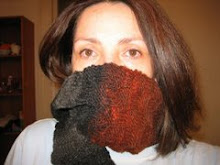TEARS
Why do people cry? Recent evidence suggests that the tears produced by emotional crying may be a way that the body disposes of toxic substances. It may seem strange to think of crying as beneficial, yet many people say that "a good cry" makes them feel better.
The belief that crying has positive effects is of ancient origin;. More than two thousand years ago, Aristotle theorized that crying at a drama "cleanses the mind" of suppressed emotions by a process called catharsis: the reduction of distress by releasing the emotions. Many people attend movies and plays that they know beforehand are, shall we say, "elicitors of psychogenic lacrimation," or tearjerkers. Such people may cry freely in movies and may delight in the experience.
There have been a few studies on the health effects of crying. Borquist in 1906 obtained reports of the effects of crying, including the observation of 54 or 57 respondents that crying had positive results. Herbert Weiner found from reports that Asthma Attacks – long thought to be largely psychosomatic – may cease as a result of crying.
While the research on the benefits of crying is intriguing but hardly decisive, other strands of evidence are becoming available. Tears produced by emotional crying differ in chemical content from those caused by irritants such as onion juice. Emotional tears contain more protein than tears induced by irritants. William Frey contends that emotional crying is an eliminative process in which tears actually remove toxic substances form the body.
Crying may "cleanse the mind" in a much more literal sense than even the catharsis theorists imagine. Other researchers are now examining the contents of emotional tears for substances such as endorphins, ACTH, prolactin and growth hormone, all of which are released by stress. While the research on psychoactive substances in tears is just beginning, there is reason to think that emotional tears may be important in the maintenance of physical health and emotional balance.
Crying is not grief; it is a way of getting over your grief. Trembling isn't the same as fear. Rather it is part of a letting go of fear. In the same manner, embarrassed laughter, yawning, and even rap[id, excited talking are parts of the healing process that get mistaken for symptoms of the problem.
There has been a lot of crying in my life (myself and people that I love) this week. Tears of sadness and of joy. I read this article today, and I thought I would share it.
Sunday, October 7, 2007
Subscribe to:
Post Comments (Atom)


No comments:
Post a Comment